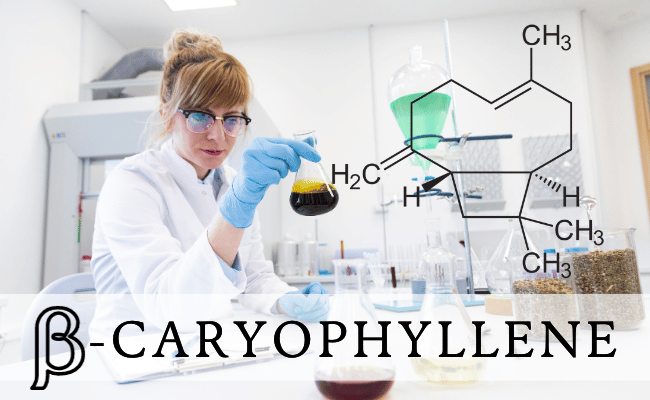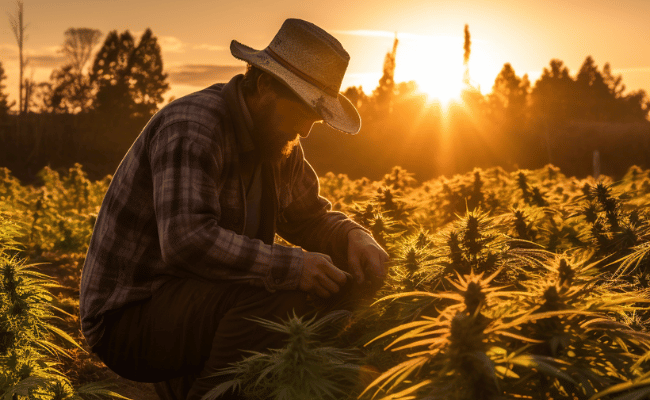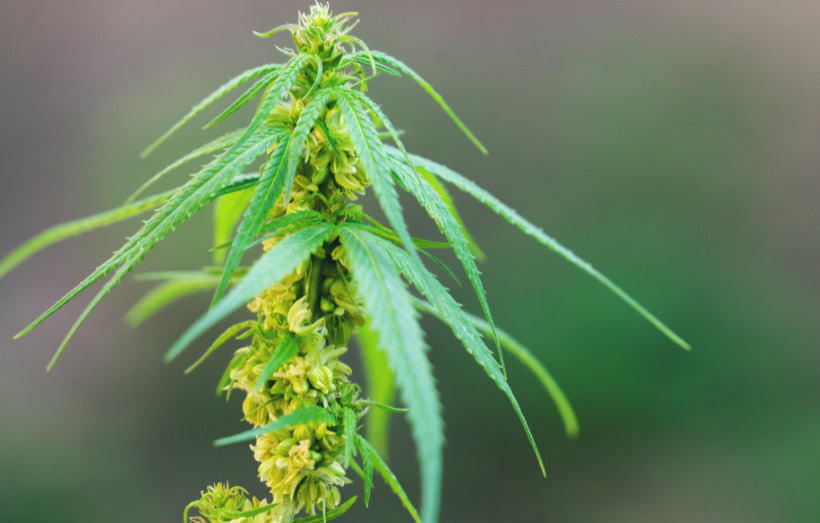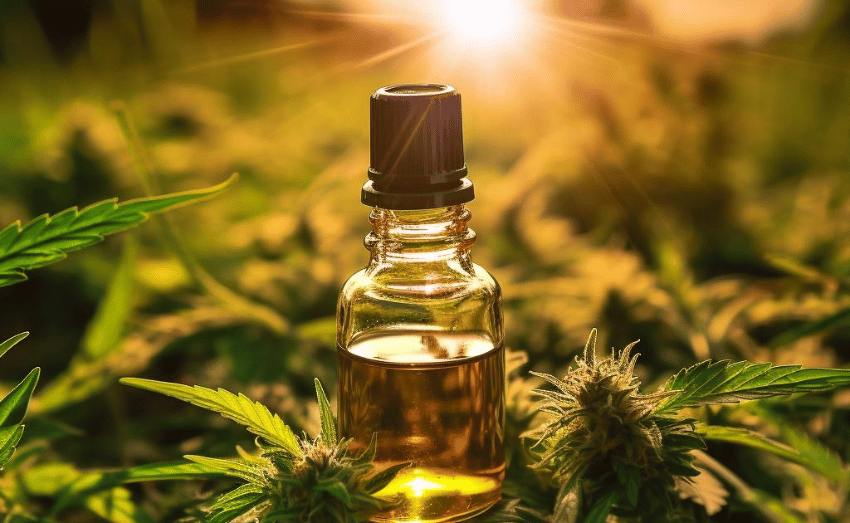For those new to the world of sustainable agriculture and eco-friendly crops, there’s one name that keeps popping up: hemp. So, what’s the deal with hemp, and is it genuinely beneficial for the environment? Let’s dive in!
What is Hemp, anyway?
Hemp is a variety of the Cannabis sativa plant species that is grown specifically for industrial uses. Unlike its cousin, marijuana, hemp has low THC levels, meaning it won’t get you high. This versatile plant has been used for centuries in various applications, from textiles and paper to food and medicine.
How Does Hemp Benefit the Environment?
Hemp’s reputation as an eco-friendly crop has garnered significant attention in recent years. But what makes it stand out from the rest? Let’s delve deeper into the myriad ways this plant can be a boon for Mother Earth.
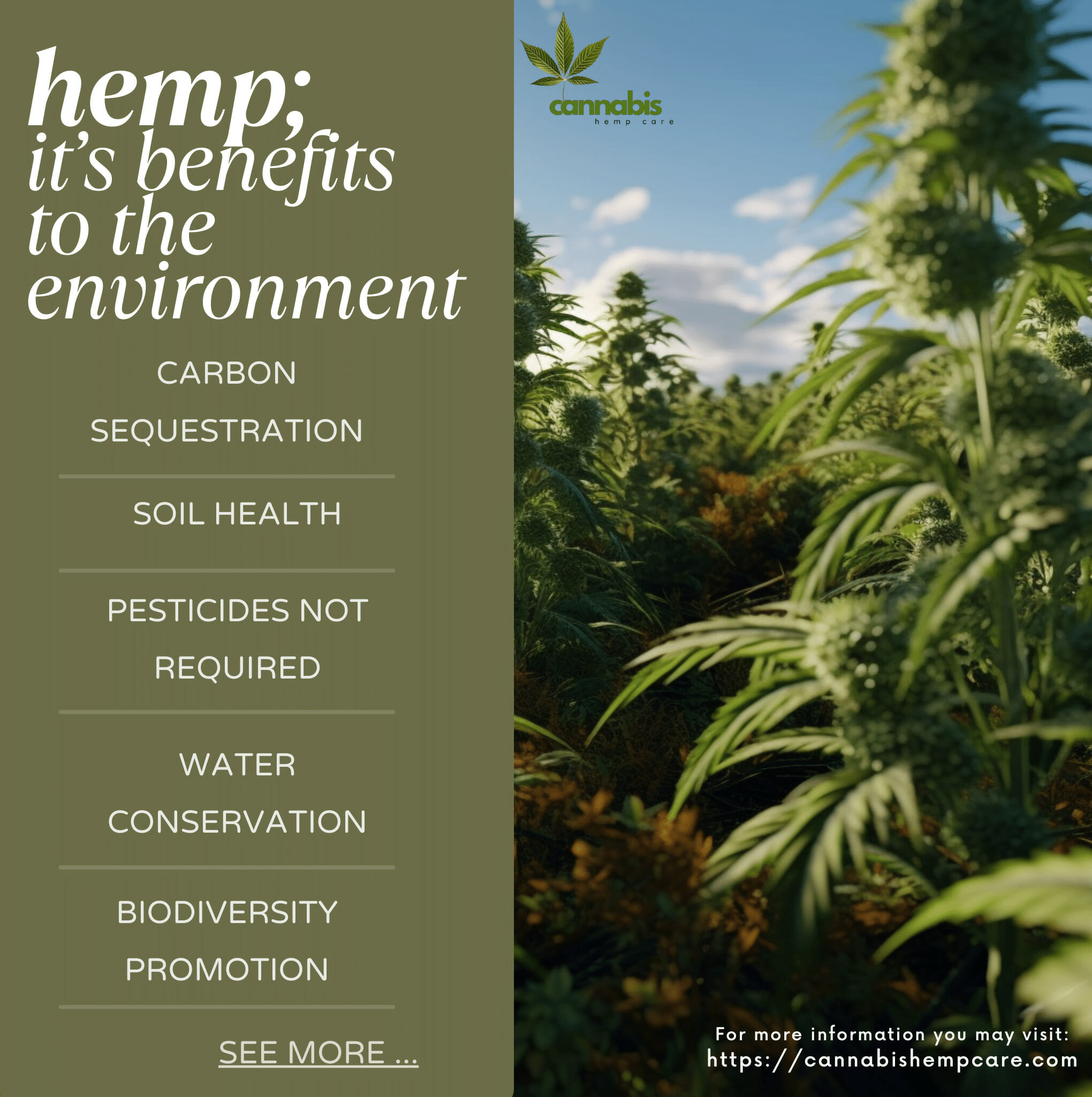
- Carbon Sequestration: A true environmental champion, hemp effectively captures carbon dioxide (CO2) from the atmosphere. As per the University of Connecticut, one hectare of industrial hemp can absorb approximately 15 tonnes of CO2, helping combat the harmful effects of climate change.
- Soil Health: Hemp doesn’t just grow; it heals. Its deep roots prevent soil erosion and improve its structure. Additionally, as the hemp plant grows, it sheds leaves, which decompose and replenish the soil with valuable nutrients and organic matter.
- Pesticides Not Required: Unlike many crops that rely heavily on chemical interventions, hemp boasts a natural resistance to many pests. As a result, it often requires fewer pesticides, herbicides, and fungicides. This not only means safer crops but also less groundwater contamination and healthier ecosystems.
- Water Conservation: Hemp stands out when it comes to water efficiency. According to research from the Stockholm Environment Institute, hemp consumes about half the water as cotton to produce the same yield. This makes it especially crucial in areas prone to drought or where water is a precious commodity.
- Biodiversity Promotion: Hemp can play a role in promoting biodiversity. Its cultivation can provide a habitat for various wildlife species. Moreover, its flowers are attractive to bees and other pollinators, which are essential for a healthy ecosystem.
- Reduction in Harmful Chemicals: When used for bioremediation, hemp can absorb heavy metals and other pollutants from the soil, effectively cleaning up contaminated land. This is particularly valuable in regions where industrial activities have left harmful residues.
- Sustainable Alternative to Deforestation: Hemp can produce a significant amount of pulp for paper production in a fraction of the time it takes trees to mature. By transitioning to hemp-based paper, we can reduce the need for large-scale deforestation, preserving vital habitats and maintaining the balance of our ecosystems.
- Natural Weed Control: Its rapid growth and dense planting mean that hemp effectively suppresses weed growth, reducing the need for manual or chemical weed control. This not only saves time and resources but also promotes a healthier, more organic agricultural approach.
- Renewable Resource for Various Industries: Hemp is highly versatile. Beyond its use in textiles, it’s a source for biofuels, bioplastics, and building materials like hempcrete. These products, when made from hemp, tend to have a smaller environmental footprint compared to their conventional counterparts. For instance, bioplastics made from hemp are biodegradable, reducing the persistent waste issue associated with petroleum-based plastics.
- Reduced Land Footprint: Unlike some crops that need vast amounts of land to be profitable, hemp can produce high yields even in smaller spaces. This efficiency in land use means that more land can be left in its natural state or used for other beneficial purposes. Moreover, hemp is known to grow in a variety of soil types, making it a viable crop in regions where other crops might struggle.
Hemp’s environmental benefits are manifold. Its cultivation can pave the way for more sustainable agricultural practices while directly mitigating some of the pressing ecological challenges we face today.
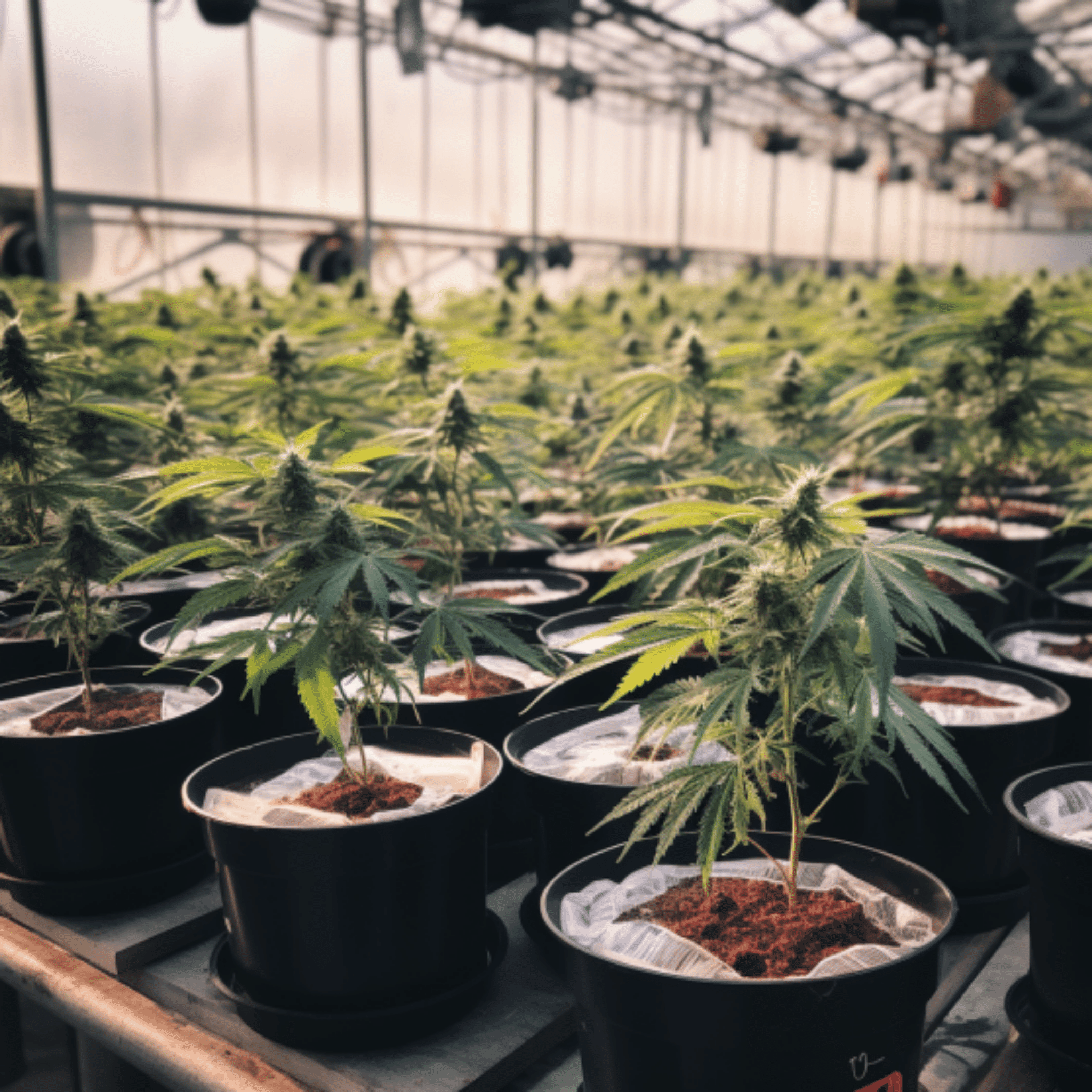
Are there any Downsides to Growing Hemp?
While hemp offers a plethora of environmental benefits, it isn’t without its challenges. Let’s break down some of the concerns associated with hemp cultivation:
- Lack of Specialized Machinery: When farmers first began reviving hemp production, especially in countries where it had been banned for years, they encountered a significant challenge: most modern farming equipment wasn’t designed for hemp. Hemp’s fibrous nature can entangle machinery, leading to breakdowns and increased maintenance costs. However, as hemp cultivation is becoming more widespread, machinery tailored to its unique needs is being developed.
Study Support: A study by Burgess et al. (2010) in the Industrial Crops and Products journal highlighted the challenges of hemp harvesting due to its tough, fibrous nature. However, this is evolving, and with innovation, the machinery issues are gradually being addressed.
- Legal Hurdles: Despite its non-psychoactive nature, hemp is closely related to marijuana, which has led to regulatory confusion in many regions. Some countries or states have stringent regulations regarding hemp cultivation, making it difficult for farmers to grow and sell it.
Real-life Example: In the U.S., the 2018 Farm Bill federally legalized hemp cultivation. Before this, hemp production was largely restricted, and many farmers faced legal challenges if they tried to grow it. This historical context has made some farmers hesitant, even with current permissions.
- Pest Management: While hemp is often praised for its pest resistance, it’s not entirely immune. Without proper management, pests can affect hemp crops, and since hemp is relatively new in modern agriculture in some areas, best practices for pest management are still being established.
Study Support: A publication from the University of Vermont (2019) suggested that while hemp has fewer pest problems than other crops, it’s still susceptible to certain insects and diseases, especially in regions where it hasn’t been grown extensively.
- Economic Uncertainty: The hemp market is still developing. Farmers who decide to switch to hemp cultivation may face risks related to price fluctuations, supply-chain issues, or market saturation as more farmers start growing hemp.
Sample Scenario: A farmer in Kentucky might decide to shift from tobacco to hemp due to the declining tobacco market. However, if too many farmers make the switch simultaneously, and the demand for hemp doesn’t match the sudden surge in supply, prices might drop, affecting the farmer’s income.
While hemp promises significant environmental benefits, it’s essential for potential hemp cultivators to be aware of its challenges. Proper research, continuous learning, and adapting to the evolving market can help navigate these hurdles effectively.
How Can I Support Hemp Cultivation?
- Educate Yourself: There are plenty of online resources and books dedicated to the wonders of hemp.
- Purchase Hemp Products: From hemp seeds to hemp clothing, supporting industries that utilize hemp encourages its cultivation.
- Advocate: Talk to local policymakers about the benefits of hemp and encourage its legalization and promotion.
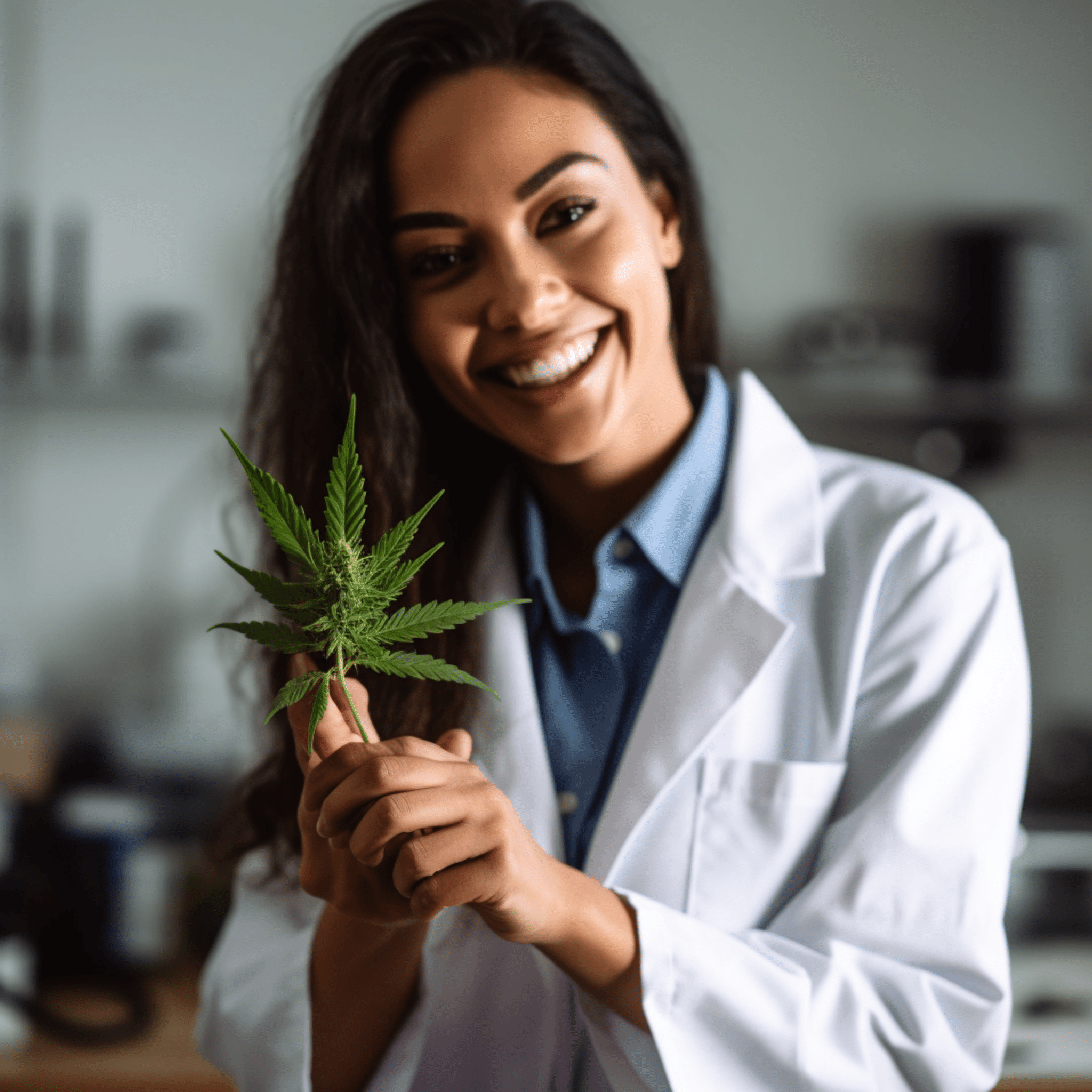
Conclusion
In the grand tapestry of sustainable agriculture, hemp emerges as a strong thread. Not only is it versatile and robust, but its environmental benefits also make it a crop that could significantly aid in addressing some of our planet’s pressing environmental challenges. For beginners looking to make eco-friendly choices, delving into the world of hemp might just be the green leap you’re looking to take! 🌿
FAQs
Is hemp good for global warming?
Yes. Hemp absorbs large amounts of CO2, a primary greenhouse gas, helping combat global warming.
Does hemp reduce air pollution?
Yes. Hemp plants filter particulate matter from the atmosphere and can replace pollutive materials like plastic.
Why is hemp carbon-negative?
Hemp absorbs more CO2 during its growth than is emitted during its processing or usage, making it carbon-negative.
Is hemp protein environmentally friendly?
Yes. Hemp protein production requires less water and land compared to other sources and doesn’t need harmful pesticides.
Which country uses the most hemp?
China. As of 2021, China is the largest producer, consumer, and exporter of hemp products globally.

